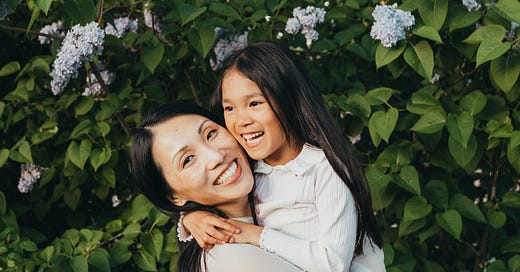Dear Readers,
Yesterday, I was at a meeting with someone I’d never met before. As we were exchanging pleasantries, I realized by contextual allusions that he and his wife were struggling with infertility. After the meeting, I remarked to my [male] friend, “Hey, isn’t it sad that they are having fertility issues when they want kids so badly?” He was like, “How do you know, and who cares?”
The answers to “How do you know” and “who cares” are exactly why I am what I call a “pathological empath”. I know because I am very attuned to social and emotional contextual details in conversation - they jump out at me and form a narrative immediately. I also tend to care too much about people and situations completely irrelevant to me. These caused a lot of problems for my in my 20s, and it’s only recently that I’ve started to realize my pathological empath tendencies.
I recounted this incident to my therapist while we were talking about my tendencies to over-empathize with people and try to fix their problems. She said that I was very attuned to suffering because of my own experiences, but that I also needed to construct healthy boundaries so that this “empathy” wouldn’t tank my life the way that it did in my 20s.
You see, I used to have this habit of befriending and also dating people who seemed inscrutable/inaccessible to others, who exuded an air of mysteriousness. It’s hard to describe, but these were often very popular people who sometimes had a social cachet, but I could tell they didn’t have truly close friends. I knew that there was sadness in their life, and it drew me like a magnet. So instead of minding my own traumas and working on my own needs, I distracted myself by trying to fix others.
Well guess what, those are the very same people who are no longer in my life and with whom I have minimum to no contact. I exhausted so much of my mental and emotional energy on them, but of course, I couldn’t fix them, surprise surprise.
I’ve had to learn that last few years to focus my energies on myself, on my own wounds and sadnesses. This was primarily driven by my kids - nobody is going to have a greater influence on their early years than their mother, so why should I spend my time trying to help others before I help myself? Whoever heard of an emotionally broken mother successfully mothering kids into emotionally resilient and healthy human beings?
Now that I am on the journey of piecing myself back together, I have the ability to recognize the pathologies that have dogged me my whole life, the worst of which is perhaps my tendencies as a pathological empath.
I realized that I have always had this uncontrollable impulse to feel what others are feeling. Do you remember those attention-grabbing and very sad commercials from the 1990s about “starving children” in Africa and Southeast Asia (not politically correct these days, I know, but they existed back then)? Every time I saw one on TV, I cried. I was maybe 6 or 7 when the waterworks started, and even now, when I see a photo of a child that is malnourished or sick, I feel the tickle in my nose.
Of course this does not make me a better or nicer person. I can’t freaking control the reaction! In fact, it probably makes me a worse person in some ways because it takes away emotional energy that I could be channeling towards actually doing something or fixing my own problems. And yes, I believe there is a limit to how much “energy” someone has, and I’ve been overestimating mine for almost 40 years 😂
My therapist told me that I shouldn’t be ashamed for being an empath, but that I do need to realize that often, the best thing to do for someone in need is to sit with them in their sorrow. Because of the life that I have had, I understand sadness, depression, emotional/physical/psychological trauma - this is my superpower. My superpower is not to fix people’s problems, but to be able to hold their hand when they are in darkness. To tell them, I know how you feel, and I see you.
Let me conclude with a dual statement: I’m sorry to everyone I tried to fix- you didn’t need to be fixed, you needed to be seen/If you’re walking in the darkness, I see you and you are not alone.



